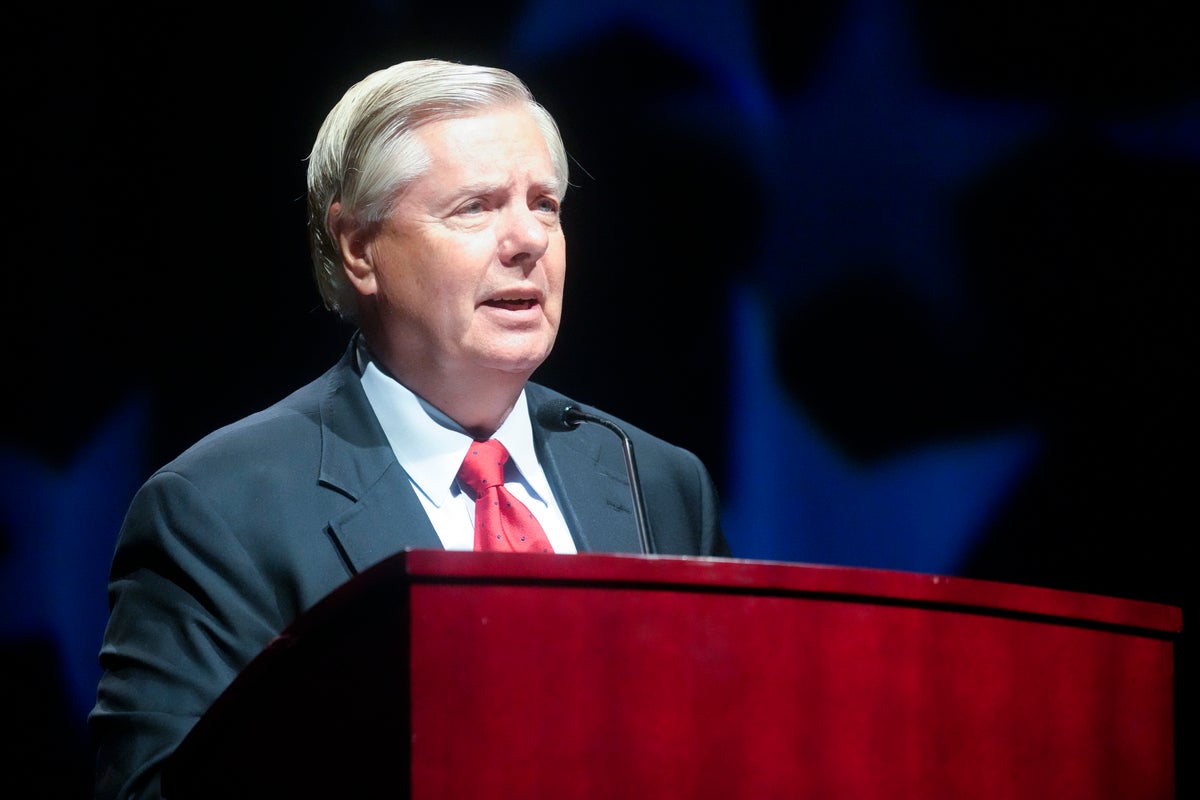
South Carolina Senator Lindsey Graham has asked a Georgia federal judge to bar the Fulton County District Attorney’s office from asking him about his alleged attempt to push state officials into throwing out postal ballots cast for Joe Biden in the 2020 election.
Mr Graham is fighting a subpoena issued to him by the special grand jury investigating former president Donald Trump’s attempt to overturn the most recent presidential election in the Peach State after he became the first Republican to lose Georgia’s electoral votes since Bill Clinton defeated then-president George HW Bush in 1992.
US District Judge Leigh Martin May had ordered Mr Graham to appear before the grand jury after he sought to have her throw out the subpoena, but the US Court of Appeals for the 11th Circuit temporarily stayed her ruling to allow Mr Graham to present arguments on whether the subpoena should at least be partially quashed.
Prosecutors have signalled their intention to question the South Carolina senator about a number of phone calls he made to Georgia Secretary of State Brad Raffensperger in the wake of Mr Trump’s loss.
Mr Raffensperger told The Washington Post in an interview that Mr Graham asked him about Georgia law concerning how signatures on absentee ballots are matched to state records, and whether poll workers could have ignored the law so they could process more ballots with votes for Mr Biden on them. The Post also reported that Mr Raffensberger said Mr Graham asked whether he “had the power to toss all mail ballots in counties found to have higher rates of nonmatching signatures”.
In a declaration sworn out before the Georgia court that approved the grand jury subpoena for Mr Graham, prosecutors said the senator "possesses unique knowledge concerning the substance of the telephone calls, the circumstances surrounding his decision to make the telephone calls, the logistics of setting up the telephone calls”. They also said Mr Graham’s testimony could reveal “additional sources of information” for the ongoing probe.
Prosecutors have said they are investigating whether Mr Graham’s calls to Mr Raffensperger were part of an attempt to "explore the possibility of a more favourable outcome" for Mr Trump in the 2020 election.
But in a motion to quash the subpoena filed Wednesday morning, Mr Graham’s attorneys claim he was merely attempting to inform his upcoming vote on whether to certify Mr Biden’s Electoral College victory and gather information in his former role as chair of the Senate Judiciary Committee. They say Mr Graham cannot be asked about the calls because the US Constitution’s “Speech or Debate” clause bars him from being questioned about official actions taken in his capacity as a senator.
“Senator Graham sought to educate himself and investigate various allegations regarding the 2020 election, and in so doing, and per his duties as a Senator and Committee Chairman, spoke with numerous people, including election officials such as the Secretary of State of Georgia,” they said.
They added that Mr Graham’s claim of immunity under the “Speech or Debate” clause is supported by his sponsorship of the bipartisan electoral count reform legislation currently pending in the Senate.
“Simply put, the Fulton County District Attorney wishes to question Senator Graham about the investigation that informed his vote per the Electoral Count Act, his duties as Committee Chair, and the subsequent introduction of legislation. This is exactly what the Speech or Debate clause is supposed to prevent,” they said.
Though Mr Graham’s lawyers have asked that he be ruled immune from having to appear before the grand jury, they said the court should “modify” the subpoena if he is ordered to appear so that he can only be questioned about matters that “neither implicate legislative activity nor involve motives for legislative activity” — a category that would exclude his calls with Mr Raffensperger.







